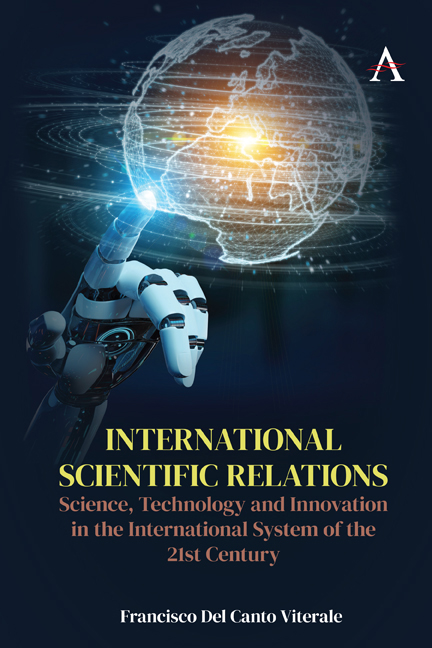 International Scientific Relations
International Scientific Relations Preface
Published online by Cambridge University Press: 08 October 2021
Summary
Being witnesses to an extraordinary historical moment due to the quantity, depth, and complexity of the changes that are taking place, the search for valid explanations that give an answer to new topics, phenomena, and actors that can be observed in the current international system must be understood as a social and scientific need. The starting point for this book has been the author's deep belief in the urgency of advancing the research on the intense changes that have taken place in the last few years in the field of international studies. The strong restructuring of the world order and the magnitude and speed of these changes make analyzing and understanding these global transformations, as well as rethinking the theoretical and methodological framework we use to give an answer to the phenomena we study, an unavoidable task.
The profound modifications that have taken place at the core of the international system in the past 30 years have given rise to a new and complex world configuration characterized by the growing phenomenon of globalization, the intensification of the scientific and technological revolution, the appearance of new international actors, and the emergence of a renewed global agenda. In the tumultuous global context of the beginning of the 21st century, science, technology, and innovation (STI) acquires a special and strategic relevance as a global agenda topic. Even though scientific knowledge has been an important factor in many past societies, what has changed is that it has become indispensable in this new phase of international relations, as the main source for generating economic benefits, political power, and social development.
The links between STI and international relations are not a new phenomenon in the international system; on the contrary, scientific knowledge has always been considered an important factor in many historical periods, from Ancient Egypt, through the European colonial empires, to its peak in the 20th century. However, in the current international system, the decisive factors are the magnitude, depth, and intensity those links have acquired. The world is changing rapidly and intensely, and scientific knowledge is one of the main causes, having become a critical variable in the international system where its prominence and influence are only growing.
- Type
- Chapter
- Information
- International Scientific RelationsScience, Technology and Innovation in the International System of the 21st Century, pp. xvii - xxiiPublisher: Anthem PressPrint publication year: 2021


